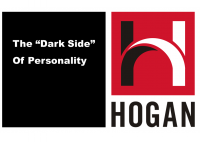Off the Rails: Avoiding the High Cost of Failed Leadership
27 Sep 2013
The last decade bore witness to some of history’s most spectacular instances of C-level derailment, from paranoid rants during shareholder meetings to PR gaffes in the wake of environmental disasters.
And those are just the ones you heard about. Two thirds of people currently in leadership positions will fail, often as the result of their inability to build and maintain a team. While not all failure is well publicized, it is all costly. Studies estimate the cost of a failed executive at anywhere from $1 million to $2.7 million - excluding those awarded “golden parachute” severance packages, some of which reach into the $100 millions. Bad leadership’s impact on morale can be even more severe; 40 percent of American workers classified their jobs as stressful and 75 percent of working adults said the most stressful part of their job was their immediate supervisor.
Fortunately, companies are not helpless in the fight against bad bosses. Although it can’t be avoided completely, personality assessment and coaching as part of executive selection and training programs can mitigate executive derailment.
Normal Personality
More than a century of research dictates that individual personality drives human behavior. Using personality assessment, we can predict individuals’ job performance, including their likelihood to succeed as a leader.
For the purposes of measuring leadership potential, personality characteristics can be separated into two categories: normal and derailed. Normal, or “bright-side,” personality is made up of positive personality characteristics that others see when individuals are at their best. In other words, bright-side characteristics describe people’s potential to get along and/or get ahead in their organizations and their lives.
The Power of the Dark Side
Drs. Joyce and Robert Hogan, two of the leading voices in modern Industrial-Organizational Psychology and founders of Hogan Assessment Systems, were the first to identify and measure characteristics of derailed personality. These “dark-side” personality characteristics-strengths that, under pressure, become debilitating obstacles-can be organized into three categories based on how each grouping handles adversity: moving away from people (intimidation), moving against people (manipulation), and moving toward people (integration).
The Paranoid Patrician
Leaders whose personalities fall in the Moving Away From People category manage insecurities by intimidating and avoiding others. This behavior stems from elevated scores along five scales: Excitable-rash, emotionally needy; Skeptical-paranoid, alert for signs of betrayal; Cautious-fears criticism or humiliation, overly worried about pleasing upper management; Reserved-lacking empathy; and Leisurely-stubborn.
Moving Away profiles are often criticized for “managing up” and catering only to senior management or boards of directors. This aloof management style causes leaders to lose a handle on the day-to-day operations and results in a lack of allies.
The Snake Oil Salesman
In sharp contrast to the reclusive executives in the previous example, leaders who fall in the Moving Against People group manage selfdoubt by charming and manipulating others.
Managers that display this style show elevated scores along four scales: Bold-expect to be admired, refuse to acknowledge failure; Mischievous-expect others to find them charming, display reckless self-confidence; Colorful-expect to be the focus of attention, impulsive; and Imaginative-indifferent to the consequences of their egocentric focus on their own agenda.
Moving Against profiles usually possess magnetic personalities and are incredibly successful at marketing themselves and their firms. These leaders often have a drive for personal success, but tend to step on fingers on the way up the ladder.
The Maniacal Micromanager
Leaders that fall in the Moving Toward People group manage insecurities by micromanaging and building alliances. This stems from elevated scores along two scales: Diligent-fussy, nit-picking micromanagers; and Dutiful-overly concerned with getting along, staff feels unsupported.
Research shows that human beings thrive on autonomy. Moving Toward profiles are often notorious micromanagers, which robs employees of their sense of responsibility and independence. The result is a huge blow to morale that could lead to an exodus of talented, high-potential employees.
Avoiding Derailment
Managerial incompetence is widespread, but it can be mitigated through the use of personality assessment and coaching as part of an executive development program.
Corporations can use personality assessment to screen for highpotential leadership candidates, and to identify personalities that are ticking bombs. Further, the strategic self-awareness provided by personality assessment can help executives and companies recognize destructive behavior patterns and compensate for them with coaching and professional development before they make the headlines.





